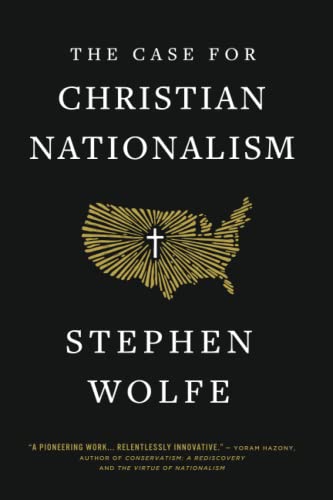I’m not any further into Wolfe’s book but I did see his twitter thread from yesterday.
Wolfe rejects ecclesiocentrism. It is not clear to me that the ecclesiocentrism he rejects is the same thing as the ecclesiocentrism someone like me might affirm. It is also not clear that Wolfe’s version of Protestant “two kingdom” political theology is identical to the Reformers, eg, I think a very good case can be made from Book 4 of the Institutes that Calvin is very ecclesiocentric. I’ll explore that later. For now a question, or series of questions:
How does a nation become Christian? A Christian nation is a discipled nation, but who does the discipling? Who teaches the magistrate how to be a Christian magistrate? Who teaches him how to be a “Christian nationalist”? Who is going to baptize the nations and teach them the whole of Christ’s Word, as it bears upon all of life? If the church only deals with heavenly matters as Wolfe contends, who disciples earthly institutions and leaders in their temporal responsibilities? The “two kingdom” theology of the Protestant Reformers was developed within a Christendom context in which the nations were already Christian. That won’t be the case today. And besides, the Reformers’ writings and preaching violated Wolfe’s strictures all the time, as they directly addressed magistrates, fathers, etc., not only proclaiming to them the way of eternal salvation but also how to fulfill their earthly duties in the meantime. Wolfe falls into the same quasi-Gnostic trap as other dualistic approaches. Christ is not only Lord over heaven, he is Lord over earth. His Word, proclaimed by his church, not only brings eternal salvation but is also the engine that powers cultural and political transformation. Wolfe says ecclesiocentrism violates the distinctions of nature/grace and secular/sacred. You bet it does. Because those are the very distinctions that created and maintain a secularized, humanistic society. The nature/grace and secular/sacred dichotomies have produced a privatized faith. Privatization is the sworn enemy of Christendom 2.0.
Wolfe says that ecclesiocentrism is a luxury belief that depends on the stability of the modern state. This is horrifically backwards. Actually, it’s the modernized “two kingdom” view that is the luxury belief, because it arises after the hard work of discipling the nation has already been done. The early church was able to disciple and transform the Roman Empire by assuming the center and functioning as an alternative culture within it. The early church was robustly ecclesiocentric. If Christians today refuse the ecclesiocentric path, focused on holistic discipleship and preaching the whole counsel of God (which addresses earthly matters as much as heavenly matters), we will never reach the goal of a Christian nation. We will be stuck right where we are. We will not get the faith out of its privatized, modernist box.
This is where Wolfe’s failure to turn to Scripture hurts him. He says the church is not a nation or polis. But those are the very terms the NT uses to describe the church. 1 Peter 2:9 must mean something. There must be a reason why the church is called the New Jerusalem.
This discussion between Michael Horton and Peter Leithart touches on a lot of helpful themes that show how the church has actually brought about cultural transformation in history. The church did not create Christendom by enforcing boundaries between the secular and sacredd, or the earthly and the heavenly, but by crashing through through those boundaries. If there is to be a renewed Christian civilization, it will flow out of the church, just like it did the last time.

